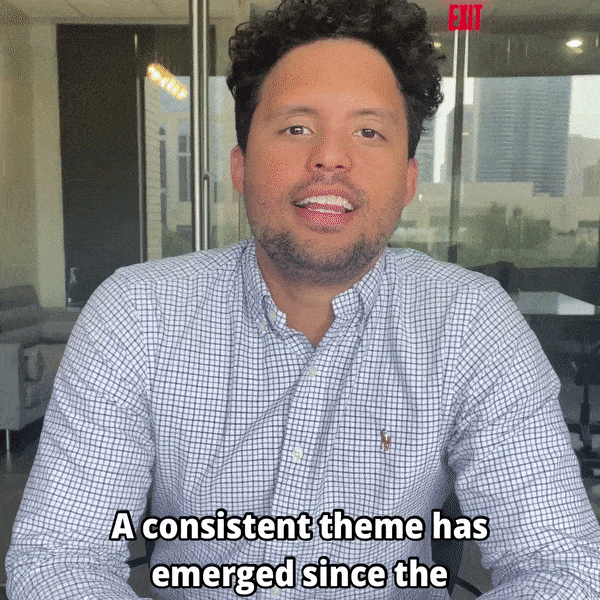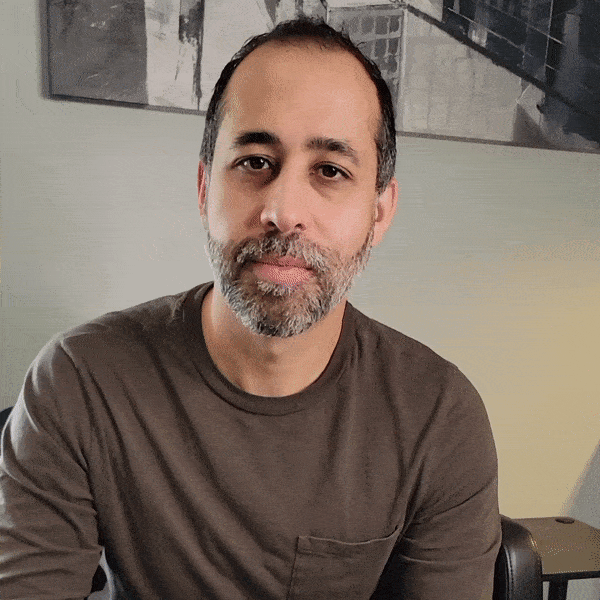On December 1, 2015, yes just 2 days ago as of this post, the Electronic Frontier Foundation filed a complaint with the Federal Trade Commission (FTC) against Google for collecting and data mining school children’s personal information. This also included their Internet searches, key words and phrases they used, the results they clicked on, videos they looked for and watched on YouTube, and their saved passwords.
Electronic Frontier Foundation Spying on Students Campaign
Electronic Frontier Foundation (EFF) was founded in 1990. In 1990 the Internet had existed for a mere 7 years and only 3 million people worldwide had access. EFF understood that with the developing technology would come legal challenges for free speech, illegal surveillance, and other rights and freedoms.
EFF launched its “Spying on Students” campaign on the same day that it filed its complaint against Google with the FTC. The campaign was created to raise awareness about the privacy risks of school-supplied electronic devices and software.
One-to-One Laptop Program
February 12, 1990 in Melbourne, Australia, the first one-to-one laptop program was launched. It has had varying degrees of success depending on who’s report you read. Back then it was DOS based and truly used within the confines of traditional education. No one, that we know of, was using these computers to keep eyes on the students. The students understood the value of this tool. The teachers understood the value of this tool. It is here to stay.
Electronic Frontier Foundation Files Complaint with FTC
So fast forward to December 1, 2015. EFF launches its “Spying on Students” campaign and files a complaint with the FTC. Google is in the business of selling hardware and software. The hardware in question is Google’s Chromebook. A unique breed of laptop. Its operating system (OS) is Google Chrome. It is designed to be used primarily while connected to the internet. Most apps and documents on this laptop live in the cloud.
Chromebooks Are Cost Effective
Because Chromebooks don’t have a lot of onboard memory, they are cost effective for schools on tight budgets. Google’s software for these computers consists of Google Apps for Education (GAFE). This is a suite of educational cloud-based software used in many schools. This software is designed for students as young as kindergarten. This educational cloud-based software is offered free to schools and learning institutions. Another reason why educational institutions would choose Google software.
Google Is a Key Player in Internet Searches
So why would Google be interested in students’ Internet searches? Why would Google want to drill down into their use to determine search words and phrases? Why would Google care about the videos they are seeking out and watching?
Google is a business. They keep their doors open by turning a profit. And like any good business Google analyzes the data that flows through their doors to keep customers happy and profits up.
Google Works to Level the Playing Field
Google sets the standard for Internet data analysis. They work hard to try and give every business a level playing field based upon what they learn.
Nearly every business represented on the Internet makes use of Google Analytics. They track peoples’ use of search terms and phrases specific to the services and/or products they offer. Businesses can target specific search terms and shoot out an advertisement to a searcher before they ever visit the businesses website.
Pay Per Click Prices Are Set by Word Use in Searches
Google uses this information to set prices for search words – pay per click. This information creates profits for Google. Google is in the business of giving searchers what they want and making a profit for themselves. If they don’t make money, they go out of business and searchers lose a valuable tool.
Did Google Use Students as Guinea Pigs
So where did Google go wrong in all of this. EFF Staff Attorney Nate Cardozo said, “Minors shouldn’t be tracked or used as guinea pigs, with their data treated as a profit center. If Google wants to use students’ data to improve Google products, then it needs to get express consent from parents.”
Signing the Student Privacy Pledge
Google signed the Student Privacy Pledge, which says in part that they will not collect, maintain, use or share student personal information beyond that for authorized education/school purposes, or as authorized by the parent/student. It goes further to state that they, Google, will clearly disclose in contracts or privacy policies the types of student personal information they maintain.
Google was collecting information about search terms, search phrases, videos watched and students’ passwords. They were clearly using this information they way that they use all of the information that is in our analytics. It is marketing research.
Google Entered Into a Contract
When Google signed The Student Privacy Pledge they entered into a contractual relationship with each and every institution of learning and every student who was given a Chromebook laptop with Google Apps for Education. Some schools require students to use Chromebooks and provide them.
Google is not sitting in front of the parents or student at the time the computer is given to the student, so they are not obtaining permission from parents or student for data collection. When they signed the privacy pledge they publically said that they would not “collect, maintain, use or share student personal information.” In doing so, Google violated FTC rules against unfair and deceptive business practices. Or so EFF’s attorneys believe.
Administrative Settings Allow for Tracking Beyond the School Provided Chromebook
We also learned from EFF’s filing that the administrative settings Google provides to schools allow a student’s personal information to be shared with third-party websites. This is a very clear violation of the Student Privacy Pledge and would fall within unfair and deceptive business practices.
This tracking of student’s search habits extends to home computers, personal laptops or smartphones. Any piece of equipment that a student uses to access their Google account will track them.
This might be acceptable if Google were using this to improve education. If by understanding how students use search terms to find information can improve the search process, then Google might be providing a valuable service to students. Google, after all, knows how to take a confusing search term, like “raw cooking” and dish up a plethora of websites form the history of the Paleo diet to the benefits of cooking with low heat.
However, Google signed the Student Privacy Pledge. Whether they had noble intentions to use this data gathering for scholastic betterment is not the issue. They were not transparent. They did not follow the rules outlined in the pledge that they signed.
Every business needs to know and understand the contracts into which they enter. Working with a diligent law firm to ensure that your business understands your contractual obligations is critical. A good law firm should be an integral part of every business team.





![Ultimate Legal Breakdown: Negative Online Reviews [e288]](https://www.pashalaw.com/wp-content/uploads/2017/06/Ultimate-Legal-Breakdown-Online-Reviews-1-1024x543.jpg)

![Does Hiring Millennials Give Rise to Age Discrimination Claims? [e192] Does Hiring Millennials Give Rise to Age Discrimination Claims?](https://www.pashalaw.com/wp-content/uploads/2015/05/Does-Hiring-Millennials-Give-Rise-to-Age-Discrimination-Claims-1024x682.jpg)

![How Legal is the Wolf of Wall Street? [e68]](https://www.pashalaw.com/wp-content/uploads/2014/07/iStock_000021786501Small.jpg)




![Law in the Digital Age: Exploring the Legal Intricacies of Artificial Intelligence [e323]](https://www.pashalaw.com/wp-content/uploads/2023/11/WhatsApp-Image-2023-11-21-at-13.24.49_4a326c9e-300x212.jpg)
![Unraveling the Workforce: Navigating the Aftermath of Mass Layoffs [e322]](https://www.pashalaw.com/wp-content/uploads/2023/07/Untitled-design-23-300x212.png)
![Return to the Office vs. Remote: What Can Employers Legally Enforce? [e321]](https://www.pashalaw.com/wp-content/uploads/2023/01/Pasha_LSSB_321_banner-300x212.jpg)
![Explaining the Hans Niemann Chess Lawsuit v. Magnus Carlsen [e320]](https://www.pashalaw.com/wp-content/uploads/2022/10/LAWYER-EXPLAINS-7-300x169.png)
![California v. Texas: Which is Better for Business? [313]](https://www.pashalaw.com/wp-content/uploads/2021/07/Pasha_LSSB_CaliforniaVSTexas-300x212.jpg)
![Buyers vs. Sellers: Negotiating Mergers & Acquisitions [e319]](https://www.pashalaw.com/wp-content/uploads/2022/06/Pasha_LSSB_BuyersVsSellers_banner-300x212.jpg)
![Employers vs. Employees: When Are Employment Restrictions Fair? [e318]](https://www.pashalaw.com/wp-content/uploads/2022/05/Pasha_LSSB_EmployeesVsEmployers_banner-1-300x212.jpg)
![Vaccine Mandates Supreme Court Rulings [E317]](https://www.pashalaw.com/wp-content/uploads/2022/02/WhatsApp-Image-2022-02-11-at-4.10.32-PM-300x212.jpeg)
![Business of Healthcare [e316]](https://www.pashalaw.com/wp-content/uploads/2021/11/Pasha_LSSB_BusinessofHealthcare_banner-300x212.jpg)
![Social Media and the Law [e315]](https://www.pashalaw.com/wp-content/uploads/2021/10/WhatsApp-Image-2021-10-06-at-1.43.08-PM-300x212.jpeg)
![Defining NDA Boundaries: When does it go too far? [e314]](https://www.pashalaw.com/wp-content/uploads/2021/09/Pasha_LSSB_NDA_WordPress-2-300x212.jpg)
![More Than a Mistake: Business Blunders to Avoid [312] Top Five Business Blunders](https://www.pashalaw.com/wp-content/uploads/2021/06/Pasha_LSSB_Blunders_WP-1-300x212.jpg)
![Is There a Right Way to Fire an Employee? We Ask the Experts [311]](https://www.pashalaw.com/wp-content/uploads/2021/02/Pasha_LSSB_FireAnEmployee_Website-300x200.jpg)
![The New Frontier: Navigating Business Law During a Pandemic [310]](https://www.pashalaw.com/wp-content/uploads/2020/12/Pasha_LSSB_Epidsode308_Covid_Web-1-300x200.jpg)
![Wrap Up | Behind the Buy [8/8] [309]](https://www.pashalaw.com/wp-content/uploads/2020/11/Pasha_BehindTheBuy_Episode8-300x200.jpg)
![Is it all over? | Behind the Buy [7/8] [308]](https://www.pashalaw.com/wp-content/uploads/2020/09/iStock-1153248856-overlay-scaled-300x200.jpg)
![Fight for Your [Trademark] Rights | Behind the Buy [6/8] [307]](https://www.pashalaw.com/wp-content/uploads/2020/07/Fight-for-your-trademark-right-300x200.jpg)
![They Let It Slip | Behind the Buy [5/8] [306]](https://www.pashalaw.com/wp-content/uploads/2020/06/Behind-the-buy-they-let-it-slip-300x200.jpg)
![Mo’ Investigation Mo’ Problems | Behind the Buy [4/8] [305]](https://www.pashalaw.com/wp-content/uploads/2020/05/interrobang-1-scaled-300x200.jpg)
![Broker or Joker | Behind the Buy [3/8] [304] Behind the buy - Broker or Joker](https://www.pashalaw.com/wp-content/uploads/2020/04/Joker-or-Broker-1-300x185.jpg)
![Intentions Are Nothing Without a Signature | Behind the Buy [2/8] [303]](https://www.pashalaw.com/wp-content/uploads/2020/04/intentions-are-nothing-without-a-signature-300x185.jpg)
![From First Steps to Final Signatures | Behind the Buy [1/8] [302]](https://www.pashalaw.com/wp-content/uploads/2020/04/first-steps-to-final-signatures-300x185.jpg)
![The Dark-side of GrubHub’s (and others’) Relationship with Restaurants [e301]](https://www.pashalaw.com/wp-content/uploads/2015/04/When-Competition-Goes-Too-Far-Ice-Cream-Truck-Edition-300x201.jpg)
![Ultimate Legal Breakdown of Internet Law & the Subscription Business Model [e300]](https://www.pashalaw.com/wp-content/uploads/2019/05/Ultimate-Legal-Breakdown-of-Internet-Law-the-Subscription-Business-Model-300x196.jpg)
![Why the Business Buying Process is Like a Wedding?: A Legal Guide [e299]](https://www.pashalaw.com/wp-content/uploads/2019/03/futura-300x169.jpg)
![Will Crowdfunding and General Solicitation Change How Companies Raise Capital? [e298]](https://www.pashalaw.com/wp-content/uploads/2018/11/Will-Crowdfunding-and-General-Solicitation-Change-How-Companies-Raise-Capital-300x159.jpg)
![Pirates, Pilots, and Passwords: Flight Sim Labs Navigates Legal Issues (w/ Marc Hoag as Guest) [e297]](https://www.pashalaw.com/wp-content/uploads/2018/07/flight-sim-labs-300x159.jpg)
![Facebook, Zuckerberg, and the Data Privacy Dilemma [e296] User data, data breach photo by Pete Souza)](https://www.pashalaw.com/wp-content/uploads/2018/04/data-300x159.jpg)
![What To Do When Your Business Is Raided By ICE [e295] I.C.E Raids business](https://www.pashalaw.com/wp-content/uploads/2018/02/ice-cover-300x159.jpg)
![General Contractors & Subcontractors in California – What you need to know [e294]](https://www.pashalaw.com/wp-content/uploads/2018/01/iStock-666960952-300x200.jpg)
![Mattress Giants v. Sleepoplis: The War On Getting You To Bed [e293]](https://www.pashalaw.com/wp-content/uploads/2017/12/sleepopolis-300x159.jpg)
![The Harassment Watershed [e292]](https://www.pashalaw.com/wp-content/uploads/2017/12/me-2-300x219.jpg)
![Investing and Immigrating to the United States: The EB-5 Green Card [e291]](https://www.pashalaw.com/wp-content/uploads/2012/12/eb-5-investment-visa-program-300x159.jpg)
![Responding to a Government Requests (Inquiries, Warrants, etc.) [e290] How to respond to government requests, inquiries, warrants and investigation](https://www.pashalaw.com/wp-content/uploads/2017/10/iStock_57303576_LARGE-300x200.jpg)
![Ultimate Legal Breakdown: Employee Dress Codes [e289]](https://www.pashalaw.com/wp-content/uploads/2017/08/Ultimate-Legal-Breakdown-Template-1-300x159.jpg)
![Ultimate Legal Breakdown: Negative Online Reviews [e288]](https://www.pashalaw.com/wp-content/uploads/2017/06/Ultimate-Legal-Breakdown-Online-Reviews-1-300x159.jpg)
![Ultimate Legal Breakdown: Social Media Marketing [e287]](https://www.pashalaw.com/wp-content/uploads/2017/06/ultimate-legal-breakdown-social-media-marketing-blur-300x159.jpg)
![Ultimate Legal Breakdown: Subscription Box Businesses [e286]](https://www.pashalaw.com/wp-content/uploads/2017/03/ultimate-legal-breakdown-subscription-box-services-pasha-law-2-300x159.jpg)
![Can Companies Protect Against Foreseeable Misuse of Apps [e285]](https://www.pashalaw.com/wp-content/uploads/2017/01/iStock-505291242-300x176.jpg)
![When Using Celebrity Deaths for Brand Promotion Crosses the Line [e284]](https://www.pashalaw.com/wp-content/uploads/2017/01/celbrity-300x159.png)
![Are Employers Liable When Employees Are Accused of Racism? [e283] Racist Employee](https://www.pashalaw.com/wp-content/uploads/2016/12/Are-employers-liable-when-an-employees-are-accused-of-racism-300x159.jpg)
![How Businesses Should Handle Unpaid Bills from Clients [e282] What to do when a client won't pay.](https://www.pashalaw.com/wp-content/uploads/2016/12/How-Businesses-Should-Handle-Unpaid-Bills-to-Clients-300x159.png)
![Can Employers Implement English Only Policies Without Discriminating? [e281]](https://www.pashalaw.com/wp-content/uploads/2016/11/Can-Employers-Impliment-English-Only-Policies-Without-Discriminating-300x159.jpg)
![Why You May No Longer See Actors’ Ages on Their IMDB Page [e280]](https://www.pashalaw.com/wp-content/uploads/2016/10/IMDB-AGE2-300x159.jpg)
![Airbnb’s Discrimination Problem and How Businesses Can Relate [e279]](https://www.pashalaw.com/wp-content/uploads/2016/09/airbnb-300x159.jpg)
![What To Do When Your Amazon Account Gets Suspended [e278]](https://www.pashalaw.com/wp-content/uploads/2016/09/What-To-Do-When-Your-Amazon-Account-Gets-Suspended-1-300x200.jpg)
![How Independent Artists Reacted to Fashion Mogul Zara’s Alleged Infringement [e277]](https://www.pashalaw.com/wp-content/uploads/2016/08/How-Independent-Artists-Reacted-to-Fashion-Mogul-Zaras-Alleged-Infringement--300x159.jpg)
![Can Brave’s Ad Replacing Software Defeat Newspapers and Copyright Law? [e276]](https://www.pashalaw.com/wp-content/uploads/2016/08/Can-Braves-Ad-Replacing-Software-Defeat-Newspapers-and-Copyright-Law-300x159.jpg)
![Why The Roger Ailes Sexual Harassment Lawsuit Is Far From Normal [e275]](https://www.pashalaw.com/wp-content/uploads/2016/07/WHY-THE-ROGER-AILES-SEXUAL-HARASSMENT-LAWSUIT-IS-FAR-FROM-NORMAL-300x159.jpeg)
![How Starbucks Turned Coveted Employer to Employee Complaints [e274]](https://www.pashalaw.com/wp-content/uploads/2016/07/iStock_54169990_LARGE-300x210.jpg)
